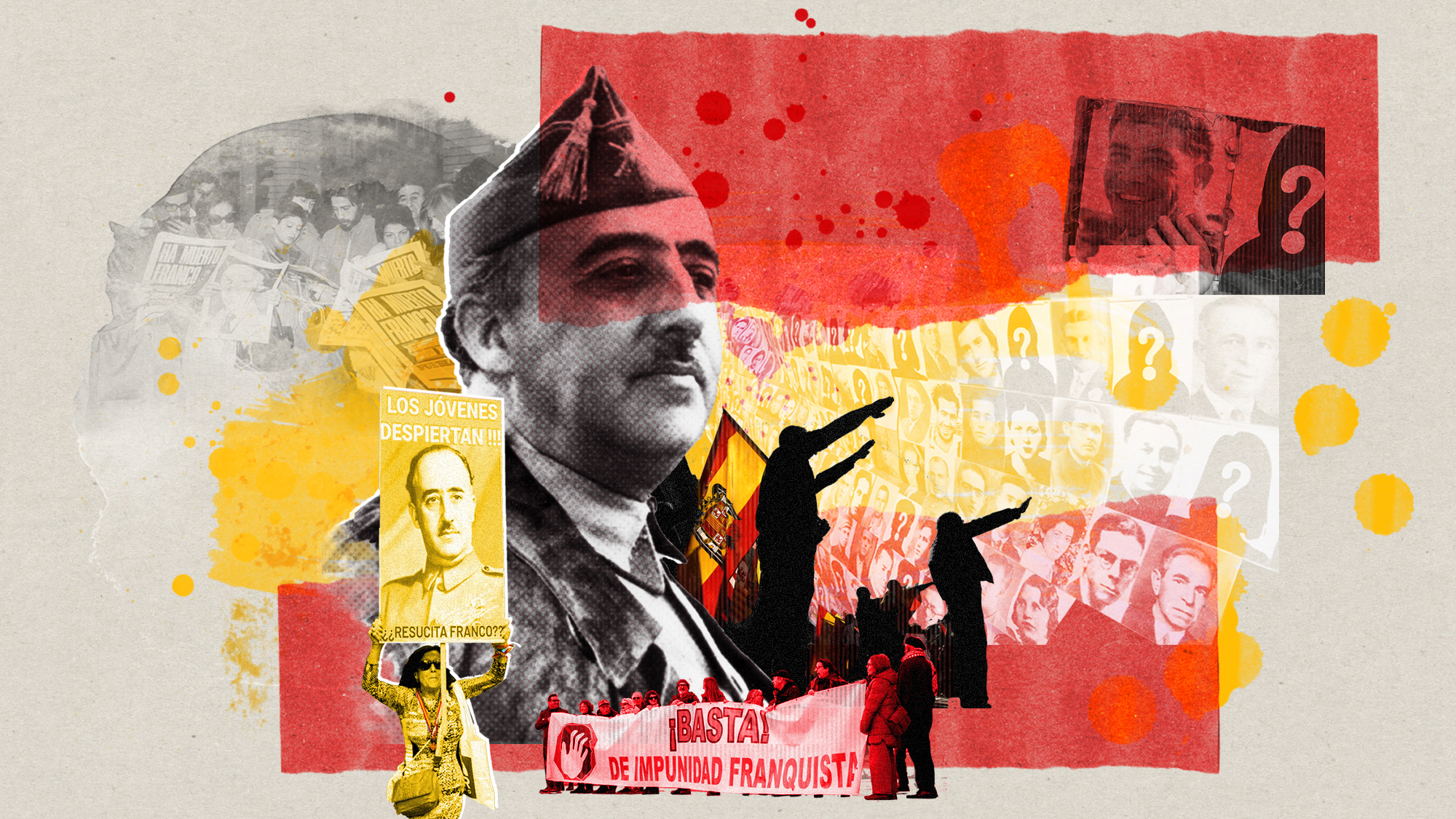Revisionism and division: Franco’s legacy five decades on
Events to mark 50 years since Franco’s death designed to break young people’s growing fascination with the Spanish dictator

A free daily email with the biggest news stories of the day – and the best features from TheWeek.com
You are now subscribed
Your newsletter sign-up was successful
Today is the 50th anniversary of the death of Spanish dictator Francisco Franco – and, as revisionist takes on his regime proliferate on social media, the Spanish government is making a concerted effort to remind the country’s young people of the reality of fascism.
Nearly one in four Spaniards between the ages of 18 and 26 would prefer an authoritarian government to a democratic one, according to an El Pais/Cadena SER poll. And 21.3% of Spaniards of all ages surveyed by state pollster CIS said they saw the Franco era as “good” or “very good” for their country – a big jump from 11.2% in 2000.
Scant knowledge
Franco, an ally of Hitler and Mussolini, died on 20 November 1975, ending 39 years of dictatorship and opening the door to a new era of democracy. For most Spaniards, it was a moment of liberation and celebration but the dictator was mourned by ultra-nationalists.
The Week
Escape your echo chamber. Get the facts behind the news, plus analysis from multiple perspectives.

Sign up for The Week's Free Newsletters
From our morning news briefing to a weekly Good News Newsletter, get the best of The Week delivered directly to your inbox.
From our morning news briefing to a weekly Good News Newsletter, get the best of The Week delivered directly to your inbox.
Fifty years on, the “deeds and legacy of the man whose military coup ushered in” a regime “built around the authoritarian ideology of National Catholicism”, still “haunt, divide and confuse” Spain, said The Guardian.
With the far-right “once more on the march”, the country's left-wing government is “using the 50th anniversary” of Franco’s death to “trumpet Spain’s transformation into a progressive modern European democracy” and remind its people of “the potency of fascism”. A year-long series of events are particularly targeted at younger voters with “no memory – and scant knowledge – of the dictatorship”.
In recent years, “historical revisionism and justification” of Franco’s regime have “crept into the generation that has grown up in freedom”, said El Pais. There is a growing and vocal cohort of youthful Franco apologists on social media. “Some people only see the bad things about Franco but they forget everything we have thanks to him,” one admirer posted on TikTok.
Pseudo-nostalgia
False narratives about, for example, life being more affordable under Franco are gaining traction with young people whose parents didn’t experience the dictatorship – and that’s partly the result of the way Spain patched up “its open wounds” in the late 1970s, said The Guardian. A “tacit social contract”, known as the “pact of forgetting”, left “the past in the past”, so the nation could “move on as quickly as possible”. And into the void stepped the revisionists.
A free daily email with the biggest news stories of the day – and the best features from TheWeek.com
Teachers talk of students who “embrace the macho, misogynistic tropes of the ‘manosphere’” also expressing “pseudo-nostalgic admiration” for a dictatorship “about whose realities they know next to nothing”. “AI-generated clips” of Franco “railing against modern ills” circulate on social media, said Reuters, while nightclubs play “techno remixes of Spain’s fascist-era anthem”.
The 2022 Historical Memory Law does make it mandatory for Spanish schools to teach students about the “fight for democratic values and freedoms”, said El País. But how they do so “often depends on the will of the educational centres, and the teachers themselves, to compete with” what’s posted on social media. Education is devolved to the country’s 17 autonomous regions “of which 11 are currently governed by the main opposition Popular Party”, which believes this teaching is “indoctrination”.
Chas Newkey-Burden has been part of The Week Digital team for more than a decade and a journalist for 25 years, starting out on the irreverent football weekly 90 Minutes, before moving to lifestyle magazines Loaded and Attitude. He was a columnist for The Big Issue and landed a world exclusive with David Beckham that became the weekly magazine’s bestselling issue. He now writes regularly for The Guardian, The Telegraph, The Independent, Metro, FourFourTwo and the i new site. He is also the author of a number of non-fiction books.